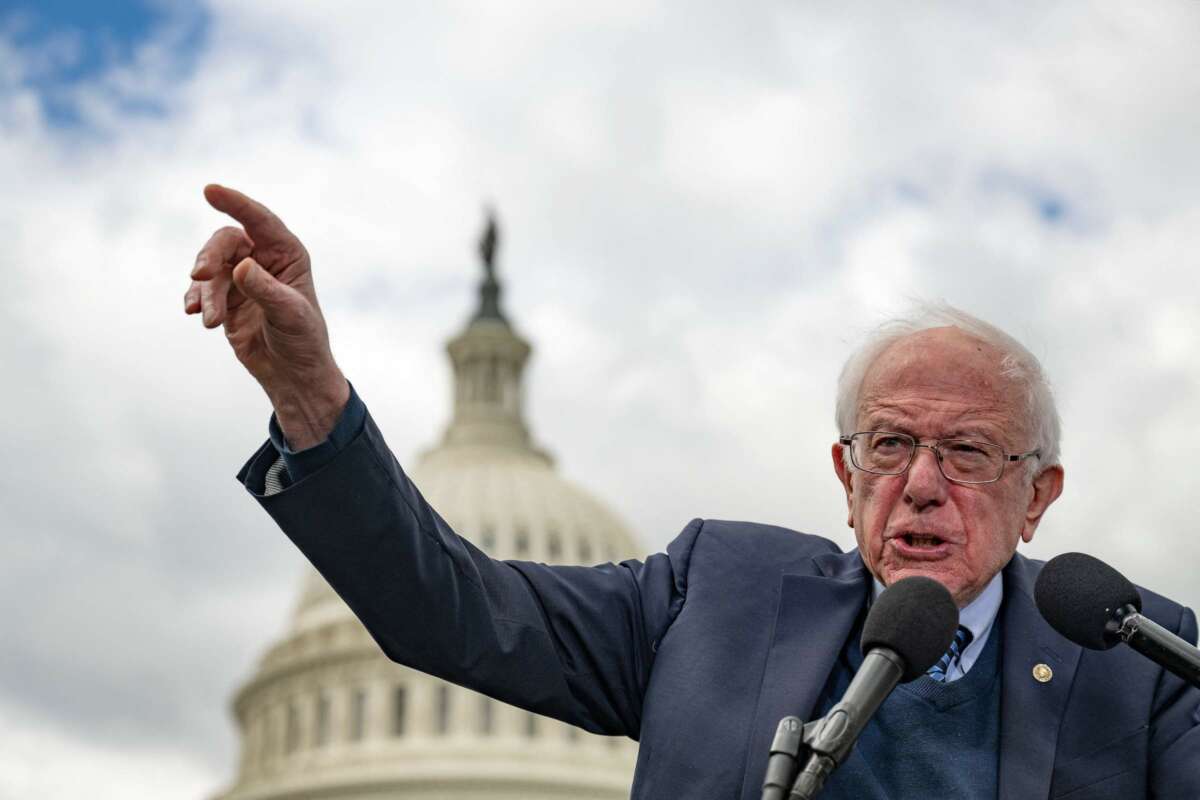Did you know that Truthout is a nonprofit and independently funded by readers like you? If you value what we do, please support our work with a donation.
On Thursday, Sen. Bernie Sanders (I-Vermont) introduced a bill aimed at cutting the price of prescription drugs under Medicare in half in one of a series of actions that the senator is taking on drug prices.
The bill, introduced alongside Sen. Amy Klobuchar (D-Minnesota), would require that Medicare access the same prescription drug prices as the Department of Veterans Affairs (VA), which has been allowed to negotiate drug prices for nearly 30 years.
If passed, the bill would save Medicare an estimated $835 billion over the next 10 years, according to a press release. It would take effect at the beginning of next year.
“There is no rational reason, other than greed, for Medicare to pay twice as much for the same exact prescription drugs as the VA,” Sanders said in a statement. “The bill we are introducing today would cut the price of prescription drugs in half under Medicare, save taxpayers $835 billion over the next decade and provide real relief to millions of seniors who cannot afford their prescription drugs.”
“If Republicans are really serious about reducing the deficit they should support this bill,” Sanders added.
The bill would, in essence, allow Medicare to buy drugs at half the price the agency currently does. According to a study by the Government Accountability Office commissioned by Sanders’s office, as of 2017, Veterans Affairs paid on average over 50 percent less for a sample of several hundred drugs, including the top 100 brand name and generic drugs in Medicare’s drug list.
A separate Congressional Budget Office report from 2021 found that the average price for 176 top drugs was $190 for Veterans Affairs and $343 for Medicare. For certain specialty drugs, Veterans Affairs pays an average of $2,002 for a one month supply — roughly 60 percent lower than Medicare’s average price of $4,902.
Even though Veterans Affairs has been able to negotiate prescription drug prices for decades, Medicare was only recently granted the ability to negotiate prices for 10 drugs starting in 2026 under Democrats’ Inflation Reduction Act.
The bill is just one of Sanders’s recent and planned moves as chair of the Senate Health, Education, Labor and Pensions (HELP) Committee to target the pharmaceutical industry. In recent months, the senator has been putting pressure on Big Pharma executives like the CEO of Moderna, on issues ranging from the prices of COVID vaccines to insulin to all prescription drugs in general. This month, Sanders is holding a hearing on insulin prices, for which he has called the CEOs of three major insulin manufacturers to testify.
Media that fights fascism
Truthout is funded almost entirely by readers — that’s why we can speak truth to power and cut against the mainstream narrative. But independent journalists at Truthout face mounting political repression under Trump.
We rely on your support to survive McCarthyist censorship. Please make a tax-deductible one-time or monthly donation.
